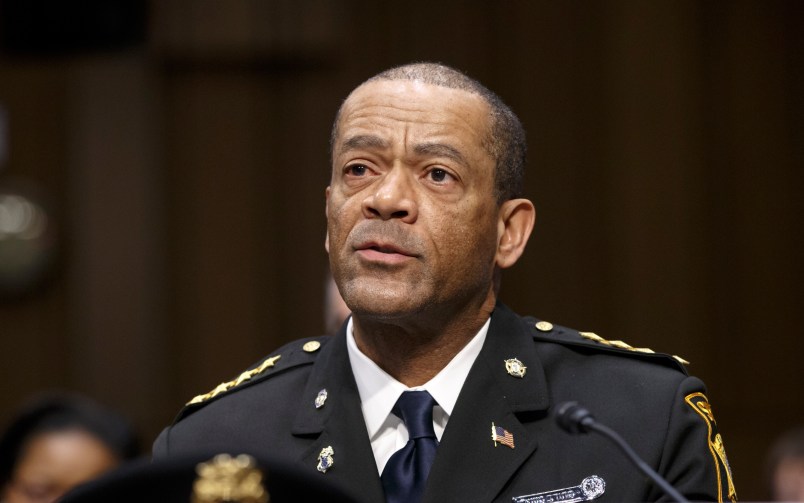Invited on air to discuss a gunman’s shooting of three police officers in Baton Rouge, Louisiana on Sunday, a controversial Wisconsin sheriff spent over ten minutes railing against Black Lives Matter as a “hateful ideology.”
Milwaukee County Sheriff David Clarke repeatedly asserted during the tense Sunday night interview with CNN’s Don Lemon that shooter Gavin Long, who was black, was motivated by the anti-police brutality movement.
“My message has been clear from day one two years ago. This anti-cop sentiment from this hateful ideology called Black Lives Matter has fueled this rage against the American police officer. I predicted this two years ago,” Clarke said.
“Do you know that this was because of that?” Lemon asked.
“Yes, I do,” Clarke replied.
There has been no evidence so far that Long, a former Marine, was affiliated with Black Lives Matter.
Lemon repeatedly urged Clarke to “keep the vibe down” and strike a note of “civility” during the contentious back and forth, but Clarke maintained that the CNN host was siding with those who have condemned racialized violence against black Americans.
Lemon said Clarke’s premise was “wrong” when he asked whether Lemon thought that all American law enforcement officers were racist.
“This whole anti-police rhetoric is based on a lie,” Clarke replied. “There is no data, and you know this, there is no data, there is no research that proves any of that nonsense. None.”
“You have to be more specific about what data and what nonsense you’re talking about,” Lemon said.
“That law enforcement officers treat black males different than white males in policing in these urban centers,” Clarke said.
“There is data that supports that,” Lemon shot back.
“There is not data,” Clark insisted.
Studies commissioned by the National Institute of Justice and Washington Post, among others, have confirmed that drivers of color are stopped more often than white drivers and that black Americans are far more likely than white Americans to be killed by police.
Clarke equated Black Lives Matter with “the KKK” and said that the group taught “vitriol in the name of virtue.”
“This has fueled and fanned the flames of this anger toward the American police officer,” he said. “There’s only one group in America—one, Don—that truly cares about the lives of black people in the urban ghetto, and it’s the American police officer, who goes out there on a daily basis, to put their lives on the line to protect who? Black people.”
Lemon cut the interview off soon after.
Clarke is scheduled to address the Republican National Convention in Cleveland on Monday for an evening devoted to the theme “Make America Safe Again.”
He is known for making inflammatory comments about race, such as his assertion that African Americans deal drugs because they are “lazy” and “morally bankrupt.”







There’s ol’ Sheriff Ruckus, at it again. He’s got a history of blaming the victims of police violence and those who protest it, and has no shame about that.
And the Republican outreach continues apace.
What the hell is wrong with this guy? Maybe he needs to sit in a quiet room and watch Tim Scott’s speech, if he’s not going to believe any other objective data.
ETA: Thanks, @trnc. I wasn’t aware of that. His may be an impenetrable belief system.
This is a ridiculous argument. Essentially it says, “Any valid criticism should be stifled because a nutcase could take it too far. Just let the authorities do what they want, right or wrong, because even valid criticism leads to violence.”
This guy is not just part of the problem; he is a major part of the problem. The biggest part of the problem is that he can’t see that there is a problem.